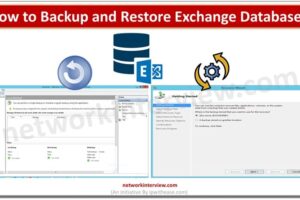
What is Self Hosting?
Self Hosting simply denotes the fact that you own your website. It will provide you with unlimited capabilities to execute operations at your own level. In certain cases, where you are considering voluntary site operation as well as revenue generation from the site, then self hosting of the website is always a good option. One such example is the monetization of the published blog. It is not possible for a user to monetize his or her blog until it is self hosted.
The process of self hosting can be conducted with the help of numerous services and software. Most of them are readily accessible on the Internet and generally installed in free as well as paid license format. Among them, most are open source and can be used for both personal and business use.
Software and Tools Used in Self-Hosting
Following are some of the most common software and tools that are used for reliable self-hosting services. We are first going to mention the types of specialized services that they are known for and then mention the software tools capable of providing the same.
Browser Configuration and Web Data
Following are certain tools responsible for providing this feature-
- Firefox Sync Server– It helps in synchronizing Firefox browser configuration, comprising autofill data, bookmarks, and passwords, across various desktop and mobile devices.
- Nunux Keeper- Ensures a private, explorable archive of the web pages that you have visited, edited and shared with friends and contacts.
- Wallabag– Used to extract contents from web pages, store them online, and view them later over desktop or mobile devices.
Cloud Storage and File Synchronization
- Nextcloud – A service for cloud storage with features like that of Dropbox. It can synchronize and share files across multiple devices and operating systems. It supports several users with individual disk quotas at the same time.
- Unison – Tool replicating files between two or more devices including computers. It supports macOS, Windows, and Unix (and equivalent) operating systems.
- Pydio – It secures sync supporting several file storage mediums. It is designed for both teams and individuals, with more focus on automation tasks.
- Seafile Community Edition– Featuring multi-platform file sync for support and version control, for both mobile and desktop devices.
DNS
- CoreDNS – It is customizable service discovery and DNS, for network clusters. For instance, CoreDNS can be configured in order to block and filter malicious domains, or even automatically explore network services over a Kubernetes cluster.
- info – For self hosting dynamic DNS.
- SPF Toolbox – Carries self-hostable network tools, comprising DNS record queries, reverse DNS lookup and whois.
File Sharing
The following software and tools help in sharing files with others in direct manner, or via distributed P2P services.
- FilePizza – For P2P file sharing directly via any supported browser.
- Firefox Send -It is an encrypted file sharing service functional on experimental basis, developed by Mozilla.
- io – To download or seed files with BitTorrent protocol in the browser in absence of isolated client software.
- Magnetissimo – A web application for self hosting that indexes after crawling several popular torrent sites, aggregating accessible torrents right to a local database.
- Transmission – It is a BitTorrent client to be used for self-hosting as well as accessing the web privately.
Remote Access and Proxies
Remote accessing and proxies are essential for privacy as well as security based on circumvent content, and geographical filters to block malicious websites. It also helps in conserving bandwidth as well as improving the loading times.
- Foundation- Helps in connecting your home computers, with full safety on Internet-connected device.
- Ngrok- Builds an encrypted tunnel accessing home web server, in order to securely access it anywhere with Internet. It functions on remote web APIs.
- Squid- A unique form of caching proxy supporting various network protocols, including FTP, HTTP, and HTTPS. It is beneficial for selectively restraining web access over your network.
- Tinyproxy – A lightweight form of HTTP and HTTPS proxy considered best for embedded or low-resource systems.
- Redbird – It is a reverse proxy meant for nodejs supporting HTTP, HTTPS, HTTP/2 as well as LetsEncrypt. It supports deployment of Docker within a cluster configuration.
Now, after understanding about the tools and software and their application, it is expected that you understand what is self-hosting all about. If you are well versed in the services conducted in it then it would be much easier for you.



